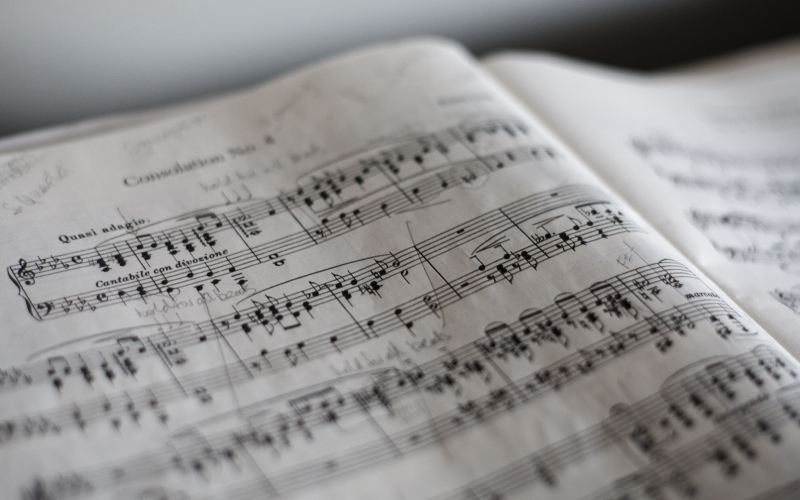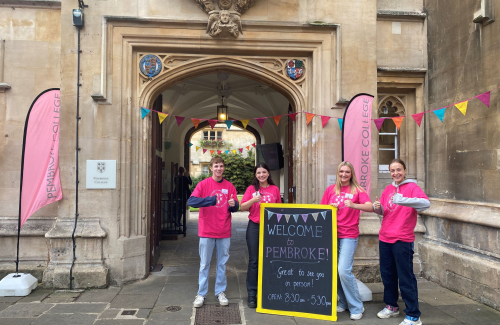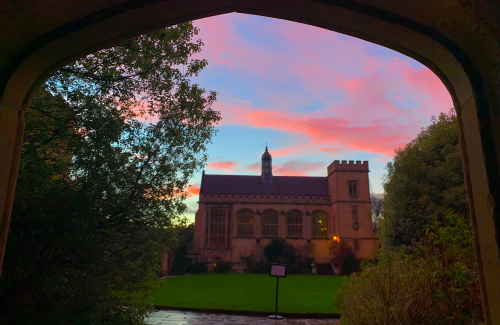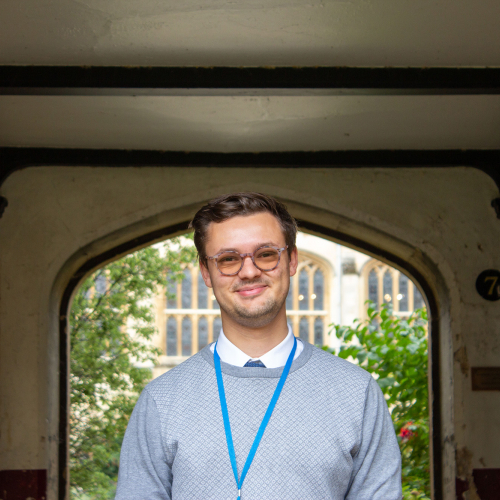Music
Why Choose Pembroke?
Dr Alexander Binns is our Tutor and Lecturer in Music. His interests are in music of the late nineteenth and early twentieth centuries and in film music and visual culture. He has also written about music in Japanese print and cinematic culture.
We have a thriving Music Society which attracts talented musicians from a wide range of academic disciplines. As well as our Music students, we aim to have two Organ Scholars in residence at any one time.
Pembroke is located only two minutes from the Music Faculty
Our Pichette Auditorium provides a modern and spacious recital space housing our Steinway D piano, and our Chapel is home to one of only three Létourneau Organs in the UK.

Meet Members of Pembroke's Music Community
Our music society offers opportunities for you to pursue your musical passions alongside your degree, with an array of extra-curricular activities and initiatives.
Student groups are supported by the College’s Lead Music Tutor and by our Music Director, Mark Wilson, a professional Bassoonist and Countertenor.
Students can:
- Participate in a non-auditioned choir, run by the Organ Scholars.
- Take part in the Orchestra and Jazz Band, run jointly by the College Music Director and students.
- Receive vocal tuition and open instrumental masterclasses.
- Perform in the Chapel Lunchtime Music Recital series (these can be found regularly on our events page) and the fortnightly Jazz sessions in the College bar.
- Perform regular concerts in the Mater’s lodgings, either informally or for important guests.
- Take part in the annual College musical
- Apply for the College’s Instrumental Award, worth £300 and open to first year undergraduates reading any subject. The Award is made on the basis of a short recital (up to 20 minutes).
The Chapel is also host to various services, recitals and other events and Chapel services make use of an auditioned choir.
Pembroke Music students are eligible for £100 of funding in their first year and another £100 in their final year towards the cost of books for their course for personal use. This is claimed from the librarian.
Music
Why Choose Pembroke?
Dr Alexander Binns is our Tutor and Lecturer in Music. His interests are in music of the late nineteenth and early twentieth centuries and in film music and visual culture. He has also written about music in Japanese print and cinematic culture.
We have a thriving Music Society which attracts talented musicians from a wide range of academic disciplines. As well as our Music students, we aim to have two Organ Scholars in residence at any one time.
Pembroke is located only two minutes from the Music Faculty
Our Pichette Auditorium provides a modern and spacious recital space housing our Steinway D piano, and our Chapel is home to one of only three Létourneau Organs in the UK.

Meet Members of Pembroke's Music Community
Our music society offers opportunities for you to pursue your musical passions alongside your degree, with an array of extra-curricular activities and initiatives.
Student groups are supported by the College’s Lead Music Tutor and by our Music Director, Mark Wilson, a professional Bassoonist and Countertenor.
Students can:
- Participate in a non-auditioned choir, run by the Organ Scholars.
- Take part in the Orchestra and Jazz Band, run jointly by the College Music Director and students.
- Receive vocal tuition and open instrumental masterclasses.
- Perform in the Chapel Lunchtime Music Recital series (these can be found regularly on our events page) and the fortnightly Jazz sessions in the College bar.
- Perform regular concerts in the Mater’s lodgings, either informally or for important guests.
- Take part in the annual College musical
- Apply for the College’s Instrumental Award, worth £300 and open to first year undergraduates reading any subject. The Award is made on the basis of a short recital (up to 20 minutes).
The Chapel is also host to various services, recitals and other events and Chapel services make use of an auditioned choir.
Pembroke Music students are eligible for £100 of funding in their first year and another £100 in their final year towards the cost of books for their course for personal use. This is claimed from the librarian.






